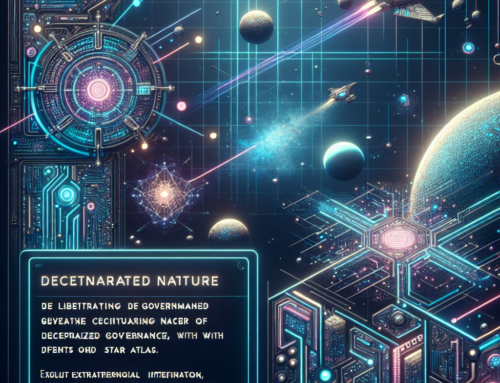Political Alienation in Star Atlas: Insights by Titan Analytics

Political Alienation in Star Atlas: Insights by Titan Analytics
In the vast universe of Star Atlas, players immerse themselves in a complex world built on exploration, strategy, and player interactions. However, a subtler, yet critical aspect of this universe is the phenomenon of political alienation. At Titan Analytics, as a Solana validator and Star Atlas analytics platform, we dedicate ourselves to elaborating on these themes that can influence player engagement and decision-making in this interactive ecosystem.
What is Political Alienation?
Political alienation refers to the sense of disconnect or disengagement individuals feel towards political systems or structures. This concept is often seen in real-world scenarios where citizens feel that their voices are unheard, or their needs unmet. In the context of Star Atlas, this alienation can manifest in various ways, such as players feeling powerless in decision-making processes or perceiving that their contributions don’t impact the broader game dynamics.
The Relevance in Star Atlas
Star Atlas operates in a decentralized environment where governance is primarily player-driven. However, as players navigate through alliances, factions, and intricate governance protocols, they may encounter experiences of political alienation. Key factors contributing to this in-game alienation include:
-
Complex Governance Structures: With multiple factions and ever-evolving policies, players might struggle to understand how they can influence game decisions effectively. If navigating these structures feels daunting, players may choose to withdraw their engagement.
-
Lack of Representation: As players align themselves with different factions, they may feel their viewpoints are not adequately represented in the decision-making processes. This sense of exclusion can lead to a diminished investment in the game.
-
Inequality Between Players: Variations in player resources, experience levels, and knowledge about the game’s mechanics can create an uneven playing field. Newer or less-equipped players may feel alienated, believing their contributions are less valuable.
Addressing Political Alienation
Understanding the implications of political alienation in Star Atlas can pave the way for a more inclusive and engaging gaming experience. Here are a few suggestions:
-
Enhancing Communication: Game developers should prioritize transparent communication regarding game mechanics, updates, and governance decisions. Interactive forums or feedback sessions can help players feel heard and involved.
-
Simplifying Governance: Streamlining the decision-making process will allow more players to grasp their roles and impact. Making tools and resources available will empower individuals to contribute meaningfully.
-
Fostering Inclusivity: Initiatives aimed at bridging the gap between experienced and new players can help create a more cohesive community. Mentorship programs or guides can stimulate engagement and reduce feelings of alienation.
Conclusion
Political alienation in Star Atlas is a multifaceted issue that can significantly influence player experiences and engagement. By recognizing and addressing these feelings of disconnect, the Star Atlas community can create a more vibrant and interactive environment for all participants.
Explore our data modules at Titan Analytics for in-depth insights into Star Atlas, or reach out to us directly at Titan Analytics Contact for any inquiries. Together, let’s enhance the Star Atlas experience while fostering a community that values every voice.




